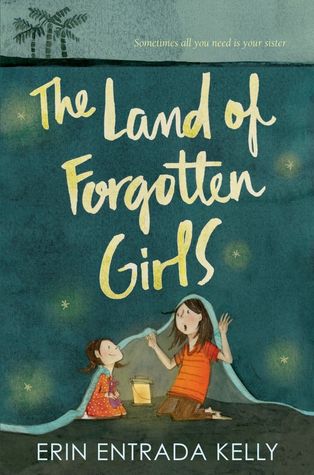 Zia, Farhana. Child of Spring
Zia, Farhana. Child of SpringMarch 1st 2016 by Peachtree Publishers, Ltd.
Copy provided by publisher
Basanta works alongside her Amma at the house of a wealthy family, where she fetches things for the whiny and demanding Little Bibi. While Basanta envies the easy life of privilege, she is not blind to the lives of others in her community that are more difficult than her own. She covets a ring that Little Bibi has, and finds it when she is cleaning. It has lost a stone, but she keeps it until she is found out, then tries to return it, only to have the owner say she no longer wants it. Having the ring should make Basanta happy, but she sees that her friend Lali mother's is struggling to feed the family and tries to trade the ring for food. The kindly grain merchant gives her rice, but lets her keep the ring. Basanta also realizes that Bala would benefit more from having "her" dog, Kalu, help him by performing shows for money. Even though Basanta is headstrong and frequently argues with her friends, she helps them when they need it most, and is even able to come to terms with her feelings about the precious ring when it is lost for good.
Strengths: There are lots of good details about everyday life in a Indian community. From food to clothing and shelter, the descriptions are vivid. Even the way children play is similar and yet very different. I've been wanting to find more books that are set in other countries, rather than just books set in the US with diverse characters, and this is a good example of what I would like to see.
Weaknesses: I couldn't tell when this book was set. It felt a little like it might be from the author's childhood, but I don't know enough about India culture and circumstances to be able to tell. This is an important detail, and it would change a lot about my reaction to the story if I knew Basanta was not in school during modern times.
What I really think: This was very good, but I was hoping for something that would shed light on what modern day life is like in Indian. Mission Mumbai gave us a little taste of it, but was mainly from the US perspective. Definitely buying, but will continue to look. I have two students who recently moved to the US from Gujarat, and I'd love to know more of their daily life, school experiences, etc.
 Kelly, Erin Entrada. The Land of the Forgotten Girls
Kelly, Erin Entrada. The Land of the Forgotten GirlsMarch 1st 2016 by Greenwillow Books
ARC provided by Young Adult Books Central and reviewed there.
Sol has had a very difficult life. In the Philippines, her younger sister drowns, her mother dies of cancer, and her father marries a woman who just wants to go to the US. Once in the US, her father leaves the family, and Sol and her sister Ming are left with Vea, who struggles to keep the girls fed and housed in a difficult part of town. Sol has a good friend, Manny, but the two make a bad choice to throw things at students from a nearby private school, and Sol injures Caroline, a girl she has made fun of because she is an albino. Vea yells a lot, and is borderline abusive, so Sol is glad to meet a neighbor, Mrs. Yeung, who takes an interest in her, even if she doesn't speak very much. Ming is obsessed with the mythical Auntie Jove, who isn't real but about whom Sol's mother told her many stories. Ming is sure that this aunt will come and take her and Sol back to the Philippines. Sol occasionally "hears" her sister Amelia talking to her in times of stress, but I would not consider the book a ghost story. Eventually, both sisters must find a way to make their lives better despite their difficult circumstances.
Magnolia Towers, where Sol lives, is very well described, and her friendship with Manny and Caroline, and well as her interactions with some of the children from the private school, are interesting. There is a fair amount of Filipino culture represented, which is good to see. Mrs. Yeung is an intriguing character who ends up helping Sol more than she could imagine.
Readers who like books like White's Survival Strategies of the Almost Brave, Benjamin's The Truth About Jellyfish, Kadohata's Kira-Kira, or other books that portray a grieving sibling will find The Land of the Forgotten Girls to be an engrossing read.
Blackbird Fly wasn't exactly cheery, but it had some hope in it. This was a lot of depressing incidents, and even the end didn't seem very hopeful. I just wanted to call children's services.
























Regarding Land of Forgotten Girls - darn it. I found Blackbird Fly too depressing for me, and am now reluctant to try this despite the severe lack of books about Filipino kids. Not something either of my own would want to read.
ReplyDelete